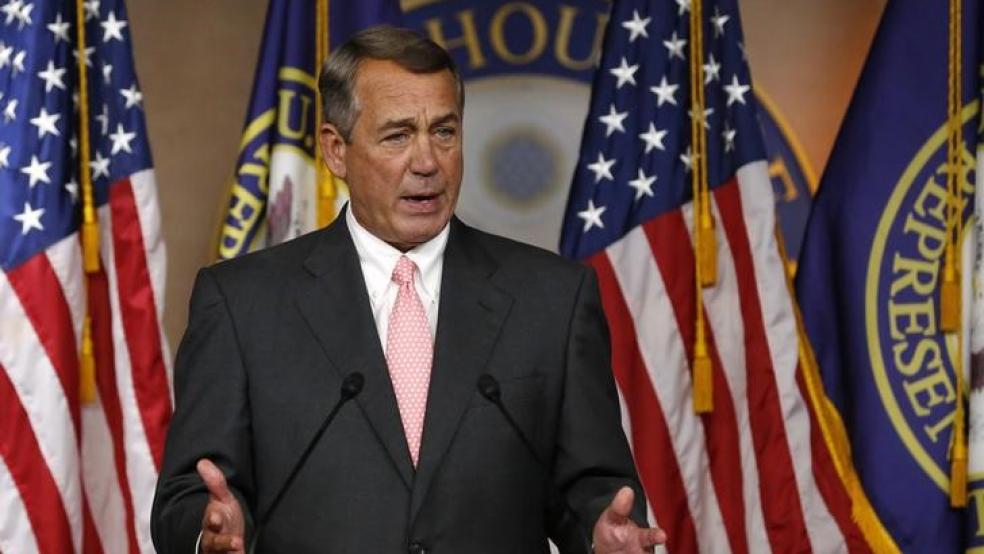WASHINGTON (Reuters) - House Speaker John Boehner's resignation reduces the chances of a government shutdown on Oct. 1, but does little to heal deep divisions in the U.S. Congress, likely increasing uncertainty that could roil financial markets later this year.
Major fiscal challenges lie ahead: a long-term federal budget deal and a debt ceiling increase. Disputes over these issues, between the two parties and within the Republican party, will not be resolved by Boehner's stunning departure.Just before telling fellow House Republicans on Friday that he would step down at the end of October, Boehner described plans to pass a stop-gap government funding measure that will omit any cut-off in federal support for Planned Parenthood.The plan defies Republican conservatives, who want to use a funding bill to punish the women's healthcare group over an abortion-related controversy. Some Tea Party conservatives had said recently that Boehner's reluctance to defund the group would jeopardize his position.Now that he is stepping down, Boehner can move with impunity on a funding bill before a Sept. 30 deadline, even if it means passing the measure largely with Democratic votes.Representative Greg Walden, a member of House Republican leadership, said the funding bill would not contain the Planned Parenthood provisions, which had drawn a veto threat from the White House. Instead, he said, House Republicans will seek other ways to restrict abortion and cut the non-profit group's funds.Later this year, tougher challenges will arrive. The government will hit its debt limit, requiring congressional action. A deal will also be needed on automatic spending cuts the parties disagree on.Both of these tests will land in the lap of a new House Speaker, possibly Representative Kevin McCarthy, who is not a Tea Party Republican, but has close ties to the faction. This could make it more difficult to cut budget deals with Democrats amid conservatives' demands to maintain spending caps and analysts said more budget brinksmanship could unnerve financial markets. "The question becomes what happens post-Halloween and who the new speaker is going to be," said Phil Orlando, chief equity market strategist at Federated Investors in New York.Several Republicans said the next speaker would find it just as difficult to unite the party as Boehner did. "You can change the faces and the names in the leadership chairs, but the pressures are going to remain the same," said Representative Steve Womack, a Republican from Arkansas. (Additional reporting by David Randall in New York; Editing by Kevin Drawbaugh and Alan Crosby)U.S. government October 1 shutdown chances drop as Boehner quits

JONATHAN ERNST



